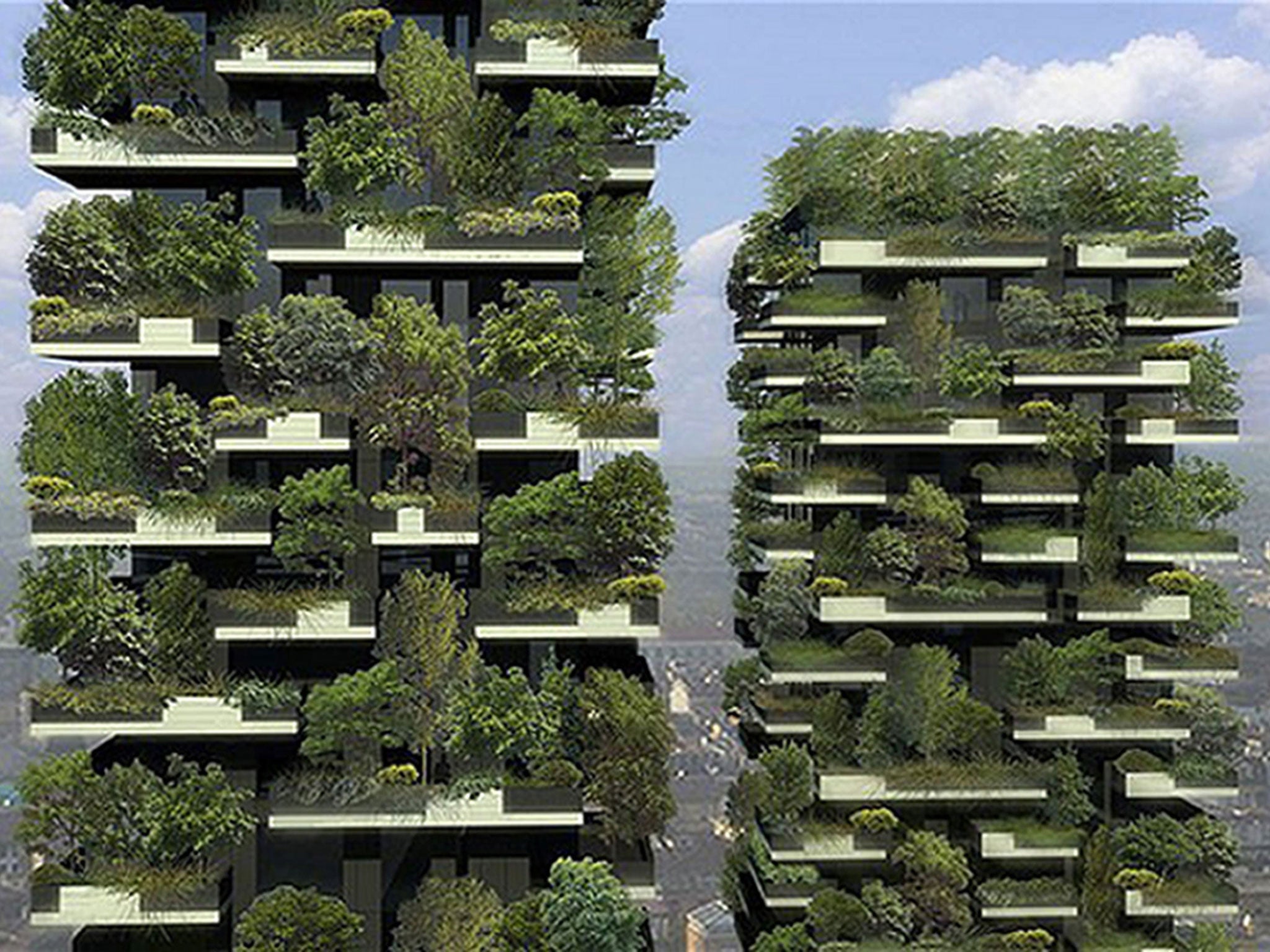The green future of the city: Glow-in-the-dark trees and high-rise farming
New report outlines the need for more green spaces as the number of humans living in ubran environments continues to rocket upwards

Your support helps us to tell the story
From reproductive rights to climate change to Big Tech, The Independent is on the ground when the story is developing. Whether it's investigating the financials of Elon Musk's pro-Trump PAC or producing our latest documentary, 'The A Word', which shines a light on the American women fighting for reproductive rights, we know how important it is to parse out the facts from the messaging.
At such a critical moment in US history, we need reporters on the ground. Your donation allows us to keep sending journalists to speak to both sides of the story.
The Independent is trusted by Americans across the entire political spectrum. And unlike many other quality news outlets, we choose not to lock Americans out of our reporting and analysis with paywalls. We believe quality journalism should be available to everyone, paid for by those who can afford it.
Your support makes all the difference.The cities of the future could be green and glowing spaces where natural elements such as bioluminescence and urban farming are used to soften the impact of a changing climate, says a new report.
‘Vertical farming’ could see crops grown all over the built environment, covering rooftops and the walls of buildings in order to meet an increasing demand for food as well as increase the number of green spaces in a city.
Materials that absorb light during the day and expel it at night could make paths glow in the dark, while genetic engineering could splice bioluminescent genes into trees to create foliage that glows. Both of these measures would reduce the need for street lighting – cutting a city’s carbon footprint while making previously dark streets more accessible at night.
These are just a few of the ideas in a new report ‘Cities Alive’, compiled by Arup, the engineering and design consultancy responsible for London’s Garden Bridge project.
This £150m scheme proposes a new crossing over the Thames near Temple that is filled with trees, shrubs and flowers, and that will be created by Thomas Heatherwick, the designer responsible for the Olympic cauldron as well as the new London Routemaster bus.
The bridge can be seen as a forerunner of the sort of schemes that would enliven future cities, blending the urban and natural environment to meet the increasing demands we are placing on our planet.
"By 2050, it is predicted that the human population will have reached nine billion with 75% of people living in cities,” said Tom Amour, a landscape architecture group leader at Arup.
"Adaptations to existing city spaces, enabled by rapid technological innovation, will serve as major catalysts in the shift toward increasing sustainability, resilience and adaptability in dense urban environments."
The research suggests that introducing more green spaces to cities has a wide range of benefits for inhabitants, helping to not only lower crime rates and increase property prices, but also improve health, both physical and mental.
Access to parks and similar spaces can increase life expectancy by up to five years through encouraging regular exercise, while this physical activity also has positive knock-on effects, reducing stress and anxiety.
The report also focuses on the need to make our environments more resilient to long-term climate change. Introducing new woodland, reed beds and permeable building materials as buffers against flood waters may not sound as exciting as glow-in-the-dark trees, but if your house was threatened with creeping water levels then you’d know which you’d prefer.
Join our commenting forum
Join thought-provoking conversations, follow other Independent readers and see their replies
Comments